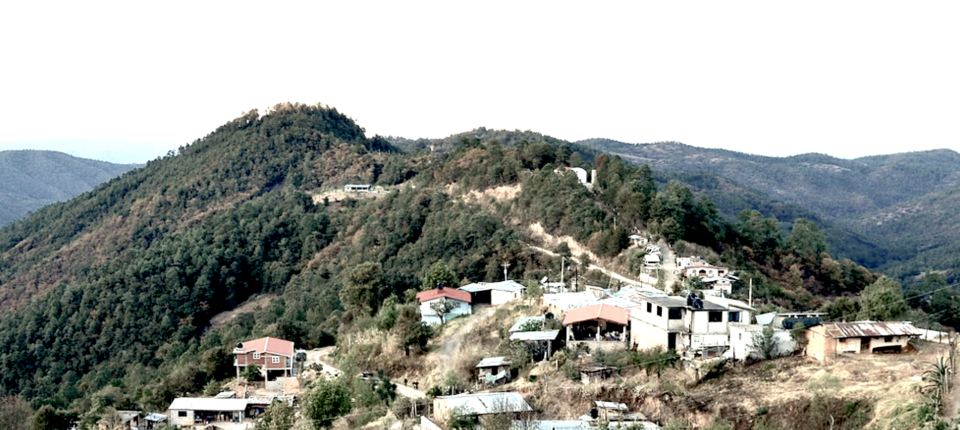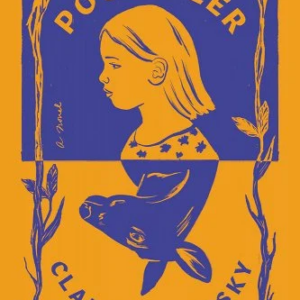I first encountered Irma Pineda’s poetry in the Mexico City literary journal Generación in 2005, as I was writing a nonfiction book set in her home region (No Word for Welcome, Nebraska, 2011). Pineda’s language, Didxazá (Isthmus Zapotec), has a written literary history that extends back 2,500 years, when Zapotecs began carving their history into stone stelae.
In 2008, Pineda mailed me a copy of her fourth book: Xilase qui rié di’ sicasi rié nisa guiigu’ / La nostalgia no se marcha como el agua de los ríos. My favorite of the collection’s thirty-six bilingual (Didxazá/Spanish) poems is the one that appears here, an untitled poem from the series “On the Path / Lu neza / Sobre el camino.” This poem’s imagery and manifestation of the book’s title enchant me. The personification of the house is inherent in the original Didxazá: ruaa is both mouth and door, guichaíque is both hair and roof.
Long before I found a home for Nostalgia Doesn’t Flow Away Like Riverwater (thanks, Deep Vellum!), I tried twenty-one times to publish “[The houses of your village have eyes]” in literary journals. This favorite poem became my most rejected translation. I am grateful to Berlin’s SAND Journal for selecting it in 2015 and to Lit Hub for selecting it now.
–Wendy Call
*
“The houses of your village have eyes”
The houses of your village have eyes
that seek the beach’s sandgrains
in the distance they see the sun
that doesn’t shine on their heads today
doesn’t brighten their shingle-tresses
painted black, red and soft colors
Who lives under the pink or yellow roofs?
Who is in the dark houses?
Winding toward the mountains the only
visible artery of your village’s body disappears
perhaps because
it’s the path that leads to the sea
gloomy village
showing only one mouth-door
painted red
Where did its lifeblood go?
Did its unbearable silence scare away
the dogs?
There are no children in the street,
not even robbers prowling the roofs
Even the birds have gone away…
*
Ca yoo xquidxilu’ napaca’ lu
cuyubica yuxi nisado’
cayuyadxica’ gubidxa
cadi cuzaani íqueca’
cadi cutiee guichaíque dexa ca’
dié nayaase, naxiñá ne na té
Tuunga nabeza xa’na’ íque yoo na té ne naguchi ca ya?
Tulaa ndaani’ ca yoo nacahui ca?
Neza ca dani riniti
tobiluchasi neza rihuiini ndaani’ guidxi
tisi ndi nga ni ribee binni
ruaa nisado’
Guidxi nacahuigá
ni cului’si ti ruaa
dié naxiñá
Paraa zé xrinibe?
Xquendadxido’be nga bichibi
bi’cu’ la?
Qui guinni xcuidi lu guidxi
ni gubaana qui richesabi íque yoo
Ca manihuiinica laaca zié ca’…
*
Las casas de tu pueblo tienen ojos
que buscan arenas de la playa
ven a lo lejos el sol
que hoy no brilla sobre sus cabezas
no ilumina sus cabellos-tejas
pintadas de negro, rojo y suaves colores
¿Quién habita bajo los techos rosas o amarillos?
¿Quién en las casas obscuras?
Rumbo a las montañas se pierde
la única arteria visible del cuerpo de tu pueblo
acaso porque ésta sea
el camino que lleva al mar
Pueblo sombrío
que sólo enseña una boca-puerta
pintada de rojo
¿Adónde fue su sangre?
¿fue su insoportable silencio
el que asustó a los perros?
No hay niños en la calle,
ni siquiera ladrones brincando por los techos
Las aves también se marcharon…
______________________________

Nostalgia Doesn’t Flow Away Like Riverwater by Irma Pineda and translated by Wendy Call is available from Deep Vellum.



